Ephesians 2:1-3 explains the greatest problem humanity faces on this earth. Ephesians 2:3 reveals the root cause of this problem, and how it leads to the destruction of humanity. This podcast study explains all of this from Ephesians 2:2. Before that, however, we look at a question from a reader about Critical Race Theory.

Question about Critical Race Theory
I listened to your recent discussions of Critical Race Theory, and while I agree that there might be some concerns with CRT, since the goal is to get rid of racism so that all people can live in love and unity with each other, shouldn’t we accept and embrace CRT, or at least allow it to have a voice in our schools and churches? CRT is part of an overall conversation about race relations, and is therefore a good thing. Right?
Everybody wants love and unity among all people. I completely agree that love and racial reconciliation are taught in the Bible and are godly goals.
The problem, however, is that while CRT claims to work toward unity, forgiveness, and reconciliation, it actually does the exact opposite. The reason it fails is twofold.

First, in the attempt to achieve racial reconciliation, CRT demonizes one particular race, namely, white people. Love, unity, and reconciliation can never occur when one group seeks to accuse and condemn another group. Such behavior does nothing but amplify the division and strife. Reconciliation can only occur when all parties agree that we are all equal in God’s image, and are all willing to view and treat each other in light of this equality.
But secondly, CRT does not lead to love and racial reconciliation because it seeks to achieve unity and love between the races through law, and specifically, through hedging around the law. Hedging around the law always leads to the opposite of what God wants. Let me explain what this is before I explain how CRT does this.
Law-hedging, or hedging around the law occurs when people take the commands and laws of God, and in an attempt to help people obey those divine instructions, create a secondary set of laws to keep people from breaking the primary law.
I talk about this in my sermon on Luke 6:1-5 and the Sabbath law keeping. “Don’t do work on the Sabbath” becomes don’t walk a certain distance on the Sabbath, don’t spit, don’t light a fire, and don’t rub heads of grain between your hands.
We have similar law-hedging rules today.
Don’t lust becomes don’t let women be beautiful (which is doubly sad, because the women get punished for the sins of men). If we really wanted to put up a hedge around the prohibition to lust, we should gouge out men’s eyes … as Jesus suggested (Matt 5:29).
Don’t get drunk becomes “Don’t drink.” Oh, let’s hedge that one too: “Don’t even have alcohol in your house.” But we can hedge that one too: “Don’t even have alcohol in your town. Let’s have dry town.” During the Prohibition Era, our country tried to really hedge around this one by banning all alcohol in the country. You know how well that turned out.
So that is hedging the law. And hedging around the law always results in catastrophe. It always leads to the exact opposite of what God wanted. Rather than result in love, law-hedging leads to hate.
Why? Because as soon as you build a hedge around the law in an attempt to keep the law, you are now using a standard which is not biblical to judge and condemn other people. And this standard based on human traditions leads to criticism and judgmentalism of people who may be engaging in behaviors that God is okay with, but you are not, because you use the standard of law-hedging while God uses the standard of love.
This is how hedging around the law leads to hate.
And this is exactly what happens with Critical Race Theory. CRT creates a system of laws and rules intended to “force” people to “do the work of antiracism.” I found a great article from Krista Bontrager called “The New Legalism” which explains how this works with CRT. After talking about how the Pharisees hedged around the law in the days of Jesus so that they could actually do the opposite of what the law required, Krista says that CRT advocates are doing the exact same thing today. CRT hedges around the biblical instructions against racism, not to end racism, but to do the exact opposite!

Here is a bit of what Krista writes in the article:
I have become persuaded that Social Justice and Critical Race Theory ARE the holiness codes of our cultural moment. “Doing the work” of antiracism has come to comprise the accepted values, language, and moral code—not just in our culture, but in many of our churches too.
“Social Justice Warriors” act as the new Pharisees. They are standing by watching, willing and ready to point out others’ moral shortcomings according to their human traditions—their hedge laws. The clear message: obey their “laws” or risk being cancelled. Within the church (or Christian higher ed), the sincerity of your faith may even be questioned!
This popular graphic is used all over the internet to explain the new definition of “White Supremacy.” The actions and attitudes listed here indicate what makes a person “unclean.” Ideas such as “White privilege” or “color blindness” are the new “holiness code” or “hedge laws” that are put forward to help prevent us from participating in covert racism.
But the question is: does this complex list demonstrate how I MUST live out God’s law of loving my neighbor? I would say no. Showing partiality, using slurs, or hating my neighbor in my heart because of her ethnicity would violate God’s standards of justice (Gal. 5:20). This graphic implies little more than a bunch of “hedge laws” that are intended to tell me how I must obey God’s commands. There is nothing about White privilege or White fragility in the Bible. There are no commands in Scripture about decentering Whiteness or performing the works of antiracism.
BUT many Christian leaders are talking as if there are!
I am opposed to racism. Racism is evil and must be purged from the world. Racism does the exact opposite of what God wants or desires, and in fact, has no place in the Kingdom of God, but rather belongs to the kingdom of darkness and the rule of satan. We must all work to bring love, healing, forgiveness, and reconciliation to all the people of the world.
But CRT does not accomplish this. Like the hedging-laws of the Pharisees, the laws and regulations of CRT accomplishes the opposite of what it claims. It does not bring love or reconciliation, but instead only amplifies hatred, discord, and jealousy among people, and thus, creates more racist feelings and tensions. Do not be led astray by Critical Race Theory. It does not help in creating unity. Instead, follow Jesus into love, grace, mercy, compassion, and forgiveness. These are traits of the Kingdom of God and these are the only way to restore unity and reconciliation to this world.
This all fits with what we learn in our study of Ephesians 2:3.
How Sinful Desires Lead to Wrath (Ephesians 2:3)
Ephesians 2 is all about the primary problem that humans face in this world, which is the problem of hatred, division, strife, and racism. Humans have always suffered from religious hatred, economic hatred, racial hatred, and cultural hatred. We use this hatred to accuse, condemn, and kill one another, and we do it all in God’s name.
In Ephesians 2, Paul describes this problem, shows what Jesus did to fix it, and then invites us to apply the example of Jesus to our world so that we can live in love and unity with each other. Ephesians 2:1-3 contains Paul’s description of the problem we humans face. We have already considered Ephesians 2:1 where were learned what the great problem of humanity is and how it leads to death, and then also Ephesians 2:2, where we learned that the accuser, satan, is behind this great human problem.
Ephesians 2:3 now shows how we humans have fallen prey to the lies of the accuser, and also shows how our actions lead to the destruction of humanity.
Ephesians 2:3. All of us also lived among them at one time, gratifying the cravings of our sinful nature and following its desires and thoughts. Like the rest, we were by nature objects of wrath.
Here in Ephesians 2:3, Paul begins by saying All of us also lived among them at one time. There are no exceptions here. All means all. You, me, Mother Theresa, Billy Graham, everyone. Paul even includes himself in this. He says all of us. All of us at one time lived as the rest of the world lives, caught up in sin that leads to death (Ephesians 2:1) and under the control of the accuser, satan, which rules the kingdom of the air (Ephesians 2:2).
Paul says next in Ephesians 2:3, that all of us were gratifying the cravings of our sinful nature and following its desires and thoughts.
There are several things to note about these statements.
Sinful nature = Flesh
 First, I am not fond of the term “sinful nature,” and it is not the best translation of the terms here that Paul wrote in the Greek. The Greek word is sarx, which is best translated as “flesh.” I argue in my Gospel Dictionary course that we do not have a “sinful nature” and should stop using that phrase. The biblical term is “flesh,” and it refers to the human tendency to use religious laws as a way to justify our violence against other human beings. It is “religious zeal carried out through religious violence.”
First, I am not fond of the term “sinful nature,” and it is not the best translation of the terms here that Paul wrote in the Greek. The Greek word is sarx, which is best translated as “flesh.” I argue in my Gospel Dictionary course that we do not have a “sinful nature” and should stop using that phrase. The biblical term is “flesh,” and it refers to the human tendency to use religious laws as a way to justify our violence against other human beings. It is “religious zeal carried out through religious violence.”
When Paul writes about “the flesh,” he is thinking the tendency of religious zealots to think that their faithful obedience to God’s commands (and more specifically, the manmade rules humans have constructed around God’s commands) puts them in better standing with God than others (cf. 2 Cor 10:3; Gal 2:20). This fits exactly with what we discussed above with Critical Race Theory.
Cravings = Lusts
Second, the term “cravings” could be translated as lusts. The word “lust” is a weighty theological word which reminds us of the three forms that sin takes … the lust of the eyes, the lust the flesh, and the pride of life. These are the three sins that Jesus was tempted with in the wilderness (Luke 4:1-13), and are also the three sins that Eve was tempted with in the Garden (Genesis 3:6).
These cravings, or lusts, are closely related to desire, which Paul also mentions in this text.
Desire
Third, the word “desire” is a key term in Scripture, as it summarizes the basic source of all sin. As far back as Genesis 3 and Genesis 4, we see that desire led Eve to eat from the forbidden tree, and desire led Adam to imitate her actions, and desire led Cain to murder Abel (Gen 4:6-7).
I previously recorded a video about the importance of desire in understanding … pretty much everything … including sin, Scripture, and human society and culture. Watch it to learn more:
So when these three terms are properly understand, Paul is saying that all people on earth used to live according to religious zeal that led us to engage in violence against our enemies. We did this because desire caused us to want what others have and destroy those who were different from us. This is the way all of humanity lives, because we didn’t know any other way to live. Sacred violence runs the world, and we all use this sacred violence to get what we want and justify the violence we use in the process.
The end result of this sort of living is wrath. But what is wrath?
What is Wrath?
Paul says … like the rest, we were by nature objects of wrath.
When most people read about “wrath” in the Bible, they think of the “wrath of God.” They think of God’s anger directed toward sinful human beings.
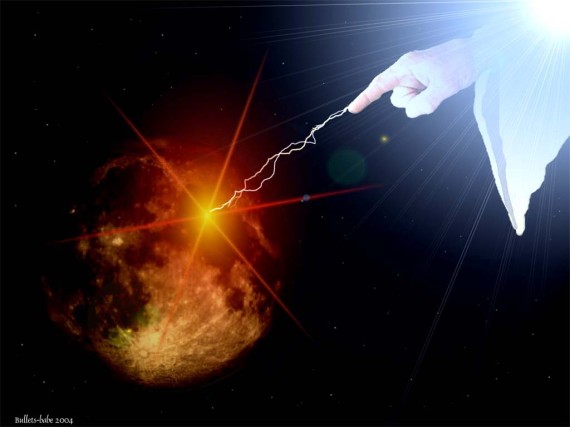
But this is not what the Bible teaches about wrath. In fact, in Scripture, wrath does not come from God at all. Most of the time, when the Bible talks about wrath, it simply uses the word “wrath” as we see here in Ephesians 2:3, without any reference to God at all. There are a couple of texts in the New Testament that do indeed use the term “wrath of God,” but I am convinced that those references are not referring to the way God really is, but instead refer to the way some religious people think about God.
I know that’s a challenging idea, but let me put it this way. There are many Christians today who teach that God hates certain types of people. You will hear some preachers say “God hates Muslims,” or “God hates homosexuals.” When you hear a pastor say such hateful things, are you to assume that since a pastor says it, this is the way God really is? No! Instead, you are to realize that some people have really bad ideas about God, and our job as followers of Jesus is to recognize pastors who preach hate are not accurately representing God the way He really is. We are to refute such false teachers as not properly showing what God is like as revealed to us in Jesus.
So in the few places where the New Testament speaks about “the wrath of God,” those texts are not correct representations of what Paul thought. Instead, in those texts where Paul writes about the wrath of God, he is quoting some bad Christian teachers from his day who wrongly believed that God was wrathful. Paul quotes these bad teachers, not because he agrees with them, but because he wants to refute them. And that is what Paul goes on to do.
It’s called Epistolary Diatribe, and Paul engages in it quite frequently. Paul quotes someone he disagrees with so that he can go on to show how they are wrong. That is what is going on when Paul writes about “the wrath of God.” Paul does not believe that God is wrathful. Paul knows that God is not. Yes, wrath exists, but it does not come from God. I will eventually have an entry in my Gospel Dictionary online course on the word “wrath” which will explain more.
So what is wrath if it is not God’s anger directed toward humans?
Wrath is the devastating and destructive consequences of sin that fall upon humanity because we sin. Wrath does not come from God; wrath comes from sin. Sin bears its own punishment with it, and Paul calls it “wrath.” When we sin, there are natural consequences that result, and these consequences destroy, hurt, harm, kill, ruin, and damage humans, animals, climate, relationships, government, culture, society, economics, and every other aspect of this world.
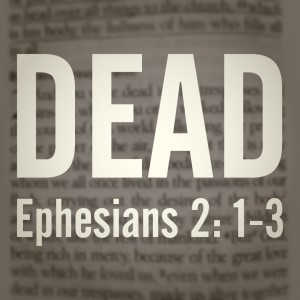 Wrath is a fire that destroys everything it touches, and the fire of wrath is sparked by human desire that leads to human violence.
Wrath is a fire that destroys everything it touches, and the fire of wrath is sparked by human desire that leads to human violence.
The assassination of Archduke Ferdinand led to Word War I, which caused the mistreatment of the German people, which led to the rise of Adolph Hitler and World War II. One act of human violence led to the death and misery of millions. This is wrath. It is a contagion that starts with a spark and spreads to destroy countless lives.
Do you see why this is the greatest problem that humans face? Wouldn’t it be nice if we could end all the violence? Wouldn’t it be great if we could fulfill the desire of every beauty pageant model and achieve world peace? Wouldn’t it be wonderful if we could bring an end to wrath?
Ah, well, that is exactly what God has done for us in Jesus Christ. And that is exactly what Paul goes on to begin describing in Ephesians 2:4.
Summary of Ephesians 2:1-3
We humans do not function properly in our roles as God’s image on earth. Instead, we were subject to the ways of this world and to the lies of satan. This led us to sin according to our desire, resulting in our own mutually-assured destruction.
More succinctly still: Because we did not follow God in the ways of love, unity, and peace, but instead followed satan in the ways of desire, sin, and death, humanity is doomed.
Ephesians 2:1-3 has explained the greatest problem that humanity faces, which is the universal human problem of desire that leads to accusation and blame, which results in a contagion of death and violence. Most humans have absolutely no idea how to break free from all this violence. Our only solution is to have more guns and bombs than the next guy.
But Paul has a better solution. And it is revealed to us in Jesus Christ. And as Jesus showed us how to solve the problem of human violence, we as the church can show the world how to solve the problem also, which in turn, can start to bring an end to violence.
This is what Paul goes on to describe in Ephesians 2:4, where we pick up next time.



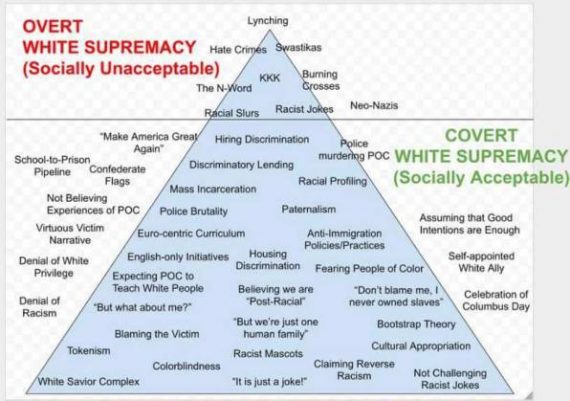

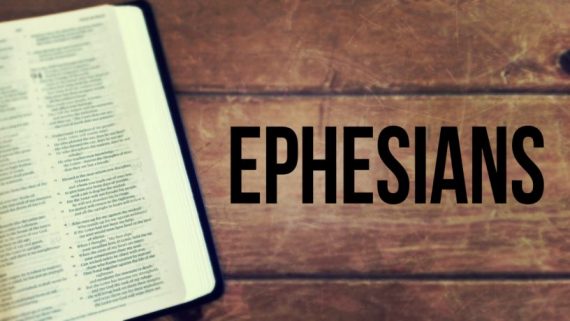
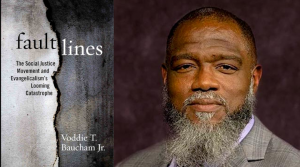


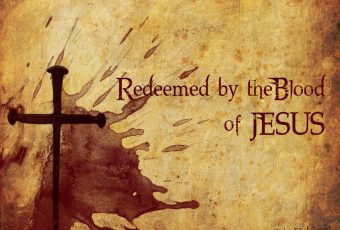 The redemption that Jesus accomplished through His blood was a rescue or deliverance of humanity from humanity. We were enslaved to an endless cycle of sacred violence and the spilling of blood in God’s name, and Jesus, by dying as He did, exposed the myth of redemptive violence and the lies of sacred violence for what they were so that we can be redeemed or rescued from this endless cycle of violence and bloodshed once and for all. I explain this idea further in my
The redemption that Jesus accomplished through His blood was a rescue or deliverance of humanity from humanity. We were enslaved to an endless cycle of sacred violence and the spilling of blood in God’s name, and Jesus, by dying as He did, exposed the myth of redemptive violence and the lies of sacred violence for what they were so that we can be redeemed or rescued from this endless cycle of violence and bloodshed once and for all. I explain this idea further in my 
 Even though God has freely forgiven us (charizomai), for all our sins, we still sin and need to be set free from our slavery to sin. This is where aphesis comes in. God has provided steps and instructions in Scripture about how to break free from the devastating and destructive consequences and patterns of sin in our life. And as we follow these steps toward aphesis, we will be released, set free, or redeemed, from sin, so that we can live as we were meant to live. So we can see that redemption and forgiveness are closely connected terms.
Even though God has freely forgiven us (charizomai), for all our sins, we still sin and need to be set free from our slavery to sin. This is where aphesis comes in. God has provided steps and instructions in Scripture about how to break free from the devastating and destructive consequences and patterns of sin in our life. And as we follow these steps toward aphesis, we will be released, set free, or redeemed, from sin, so that we can live as we were meant to live. So we can see that redemption and forgiveness are closely connected terms.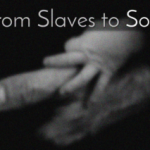
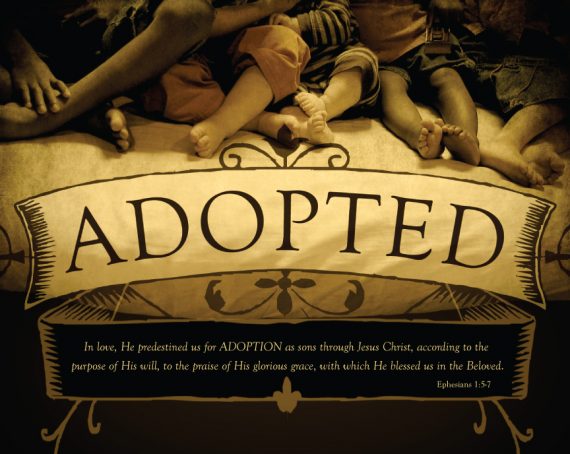
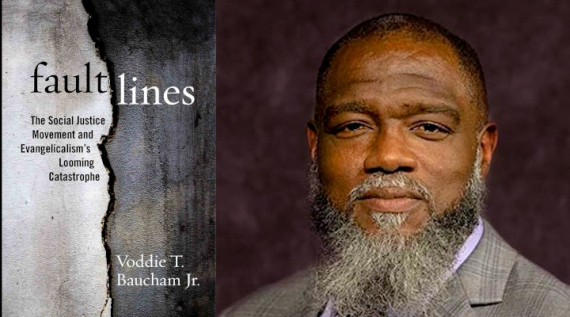

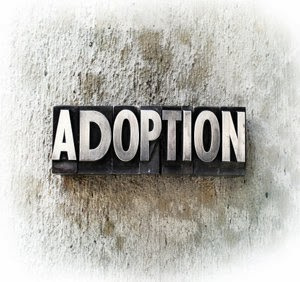 In Ephesians 1:5, Paul writes that God predestined us to be adopted as his sons.
In Ephesians 1:5, Paul writes that God predestined us to be adopted as his sons.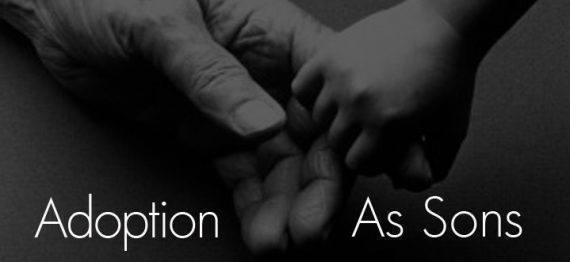 Paul, of course, was a Roman citizen, and the letters in which he mentions adoption were written to other Roman citizens, so it makes sense that Paul’s language about adoption matches the way it was practiced in Roman culture at that time.
Paul, of course, was a Roman citizen, and the letters in which he mentions adoption were written to other Roman citizens, so it makes sense that Paul’s language about adoption matches the way it was practiced in Roman culture at that time.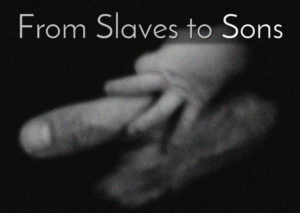 That is what Paul says God is promising to us here. God has named us heirs. We are heirs of God and co-heirs with Jesus Christ. This promise of predestination is not about God deciding who gets to heaven and who goes to hell; it is about God decided that rather than just one son getting all of His inheritance, all of His children get to share in the inheritance of His family. What a wonderful promise and blessing for His children!
That is what Paul says God is promising to us here. God has named us heirs. We are heirs of God and co-heirs with Jesus Christ. This promise of predestination is not about God deciding who gets to heaven and who goes to hell; it is about God decided that rather than just one son getting all of His inheritance, all of His children get to share in the inheritance of His family. What a wonderful promise and blessing for His children!